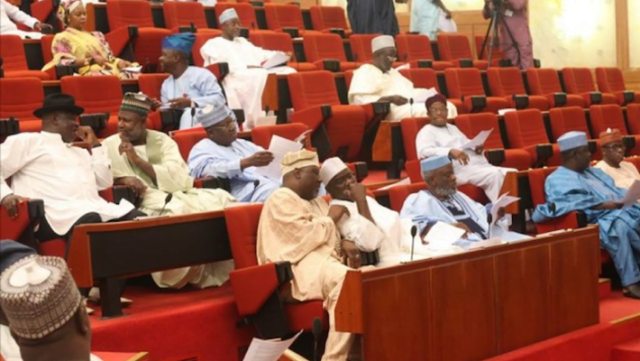The Senate is set to commence a two-day public hearing concerning the four tax reform bills proposed by President Bola Tinubu, aimed at enhancing the country's tax administration.
The chairman of the Senate Committee on Finance, Sani Musa, made this announcement during a press conference in Abuja on Wednesday. Following a closed meeting with committee members, he revealed that the public hearing will take place on February 24 and 25.
“We plan to address two of the bills each day so that the press can be fully informed about our intentions. The bills include the Nigeria Tax Bill, 2024 Nigeria Tax Administration Bill, Nigeria Revenue Service Establishment Bill, and Joint Revenue Board Establishment Bill,” the senator stated.
He noted that these bills are designed to transform the tax administration and revenue collection within the nation, highlighting that many of their provisions are groundbreaking.
Musa emphasized that this initiative would position Nigeria comparably with developed economies, ensuring that infrastructure, education, agriculture, and other critical sectors are well-funded.
Musa further mentioned that committee members had thoroughly reviewed the bills and engaged with various stakeholders prior to the decision to hold the public hearing.
He expressed optimism about the hearing's success and remarked that President Bola Tinubu has consistently guaranteed non-interference in the tax reform processes.
“It is our responsibility as lawmakers to do what is necessary for the welfare of our country. We represent diverse tribes, religions, and regions, and we are all Nigerians. Our goal is to enact laws that will drive economic progress. With divine assistance, we will achieve this,” he asserted.
Musa also indicated that they have invited the minister of petroleum resources, the chairman of the Federal Inland Revenue Services, and the statistician-general of the federation to provide their insights during the session.
He assured that the National Assembly would ultimately produce a tax administration legislation that the Nigerian populace would find acceptable.




















